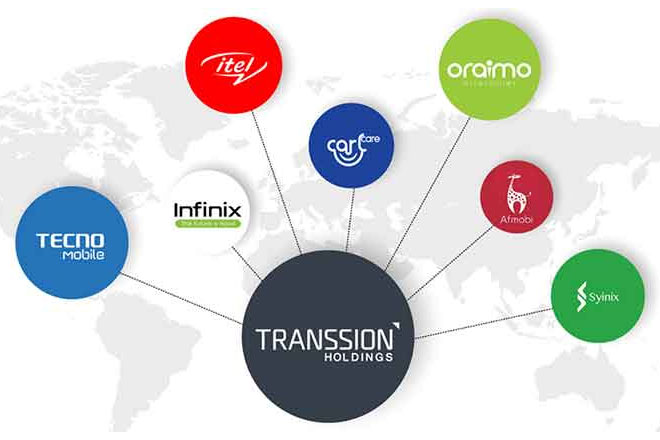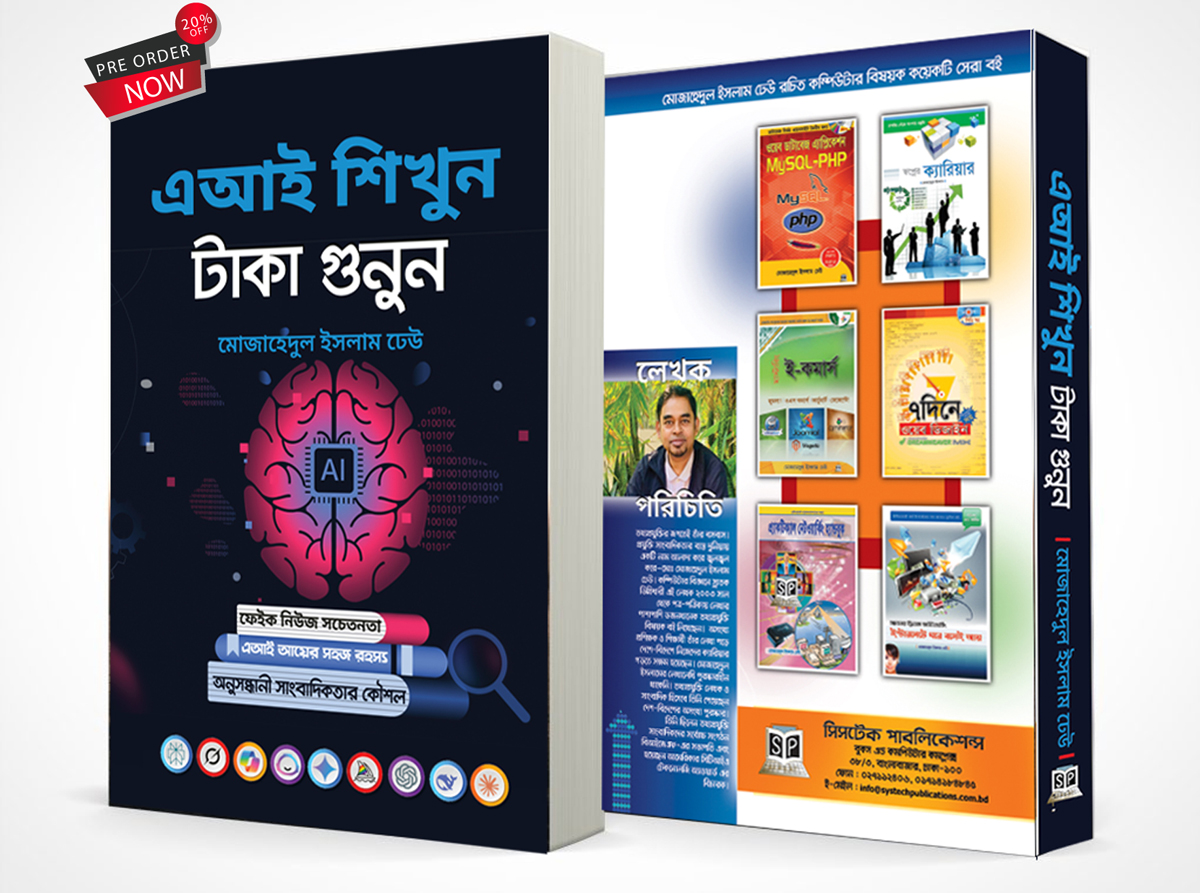Tech
zero name recognition inside China, Transsion expanded across Africa
Published
4 years agoon

In 2008, Transsion Holdings sold its first mobile device in Nigeria. Within a decade, the Chinese company, which has virtually zero name recognition inside China, had expanded across Africa. In 2017, it overtook Samsung as the continent’s number one mobile phone supplier.
Who’s behind Transsion?
After spending the early 2000s globe-trotting for the overseas business arm of Chinese mobile phone maker Ningbo Bird, Transsion founder Zhu Zhaojiang broke out on his own. He opened Transsion’s first office in Lagos in 2008, and setting his sights on Sub-Saharan Africa, planned to sell millions of phones catering to the African market.
“In the past, firms that did business in Africa and South Asia did not spend too much on research and development (R&D), but in fact, emerging markets require more R&D efforts,” Zhu told Global Times, China’s state-owned national daily.
More than a decade later, Transsion operates three brands from its headquarters in Shenzhen in China: Infinix, Itel, and Tecno. Collectively, they represent the bestselling mobile phones on the African continent — on both basic so-called feature phones and smartphones. Transsion recorded over 40% of smartphone sales in Africa in the last quarter of 2019, according to research firm IDC. For the past three years, Transsion has led Africa in market share.
Now listed on China’s tech-focused STAR Market, Transsion raised over $400 million during its September 2019 IPO. Its current market cap stands at just over $7 billion. The market cap for mobile giant Xiaomi, the world’s leading budget smartphone producer, is $39 billion.
How did they do it?
Transsion’s ethos is rooted in a business strategy called “glocalization,” the creation of products that will sell universally but can be customized to specific markets or regions. In the case of smartphone manufacturing, Transsion has been lauded for paying attention to which features African consumers want in their devices.
Most mobile-savvy Africans know that in order to avoid network fees and get the best connectivity in low-coverage areas, they need more than one SIM card — but most can’t afford two different phones. Transsion solved that problem by selling dual SIM card phones in 2008, two years before competitors like Nokia began to. Today, some Transsion phones even include a four-SIM feature.
One feature that set Tecno apart was its camera, which had been developed for better exposure on darker skin tones. Transsion invested heavily in R&D for this project, analyzing several million photos of dark-skinned Africans and surveying the exposure and color temperature settings of local users. Ultimately, it synthesized these preferences into the design of its own camera.
In Ethiopia, Tecno became the first major phone brand in the country to offer a keyboard in Amharic, the country’s native script. This unlocked an entirely new customer base. Swahili and Hausa keyboards have also been added to Transsion devices.
And, of course, they’re cheap.
Transsion’s feature phones are currently sold for as little as $20.
In Sub-Saharan African countries such as Kenya, Ghana, and Ethiopia, an entry-level mobile phone on average costs 69% of a person’s monthly income, according to a 2019 report from mobile network trade association GSMA. In the poorest 20% of the population in those same countries, that percentage skyrockets to almost three times what a person makes in a month. The cost of a phone matters.
In order to keep its prices low, Transsion bypassed costly additions like palm-sized touch screens, multiple-lens cameras, and advanced computing power. In place of full-fledged smartphones, Transsion sold feature phones, which still allow users to text, call, and access apps like Facebook and use Opera’s internet browser, even though they don’t have access to third-party app stores and other options normally associated with iOS or Android.
“Transsion focused on this cheap model first and then moved to smartphone manufacturing gradually, spreading their influence in the rural regions,” said Louis Liu, an analyst at the market research firm Canalys. Cornering this low-end market early established Tecno and Itel as household names.
Among the top 10 mobile phones sold in Africa in August 2019, the last date available, Transsion brands held eight spots. Itel’s IT1406 was the cheapest phone on the list at a $35 retail price. Its closest competitor, Huawei, was selling its Y6 Pro for $101.
Today, Transsion also outperforms its early rivals in the low-cost feature phone space, including Nokia. The Finnish company, which has been selling phones in Africa since the mid-1990s, once ruled the market in the 2000s but ranks second in feature phone shares across Africa as of 2019, with 10% of units, according to IDC. Transsion now controls more than two-thirds of the market.
Are they stopping with Africa?
Not quite. In 2019, Transsion started expanding its manufacturing operations in Pakistan, Bangladesh, and India.
“[Transsion] is a success story,” said Ramazan Yavuz, a senior mobile market research manager at IDC. “For a very region-driven brand that has been successful in Africa, I think their efforts in the Indian subcontinent are a replication effort.”
India in particular will be a test of Transsion’s ability to apply its glocalization strategy to a bigger and more competitive environment. The country buys more premium smartphones than the African markets where Transsion operates, and device makers like Oppo, Huawei, and Xiaomi have spent years earning their Indian market shares. But India is the second largest smartphone market in the world after China, and there may still be room to compete in the “ultra-low-end” bracket.
You may like
Tech
Pre-Orders Open for Mojahidul Islam’s Latest Computer Book ‘AI Shikhun, Taka Gunun’
Published
1 month agoon
September 12, 2025
Technology writer and journalist Mojahidul Islam Dheow is set to release his new book, “AI Sikhun, Taka Gunun.”
Online pre-orders have already started, and the book is being published by Systech Publications.
In today’s digital age, we stand at a turning point—where simple keystrokes can turn into dollars, and Artificial Intelligence (AI) is becoming humanity’s newest coworker.
This book acts as a bridge, connecting learning with earning and blending investigative journalism with awareness-raising for general readers. The book is structured into three parts.
The first section is designed as an earning guide for young people. It explains how AI content prompts can create opportunities in the freelancing market and how small ideas can grow into significant income streams.
The second section serves as a hands-on investigative handbook for journalists, offering practical tips on using AI tools for data mining, verifying sources, and ensuring cybersecurity.
The third section is aimed at general readers. It presents the opportunities and risks of AI in simple language while also teaching methods for spotting deepfakes and identifying fake news.
Mojahidul Islam Dheow, a Computer Science graduate, has been writing and publishing technology-related books since 2003, with more than a dozen titles to his name.
His book “Web Database Application: MySQL–PHP” was the first Bangla-language book on website database and application development, earning him the Best Author Award in 2021. Dheow’s writing style is lively and accessible—sometimes deeply technical, sometimes witty and lighthearted. His words make readers feel as though they are casually learning new hacks while chatting with a friend.
This book is equally valuable for three key audiences: those who want to start freelancing but don’t know how to begin, journalists eager to learn the magic of AI-powered data tools, and everyday readers curious about how AI is reshaping our daily lives.
All in all, “AI Sikhun, Taka Gunun” is not just another book—it is a complete roadmap for surviving and thriving in the age of AI.
According to the author, the book will help readers discover numerous exciting ways to earn with AI. These include offering writing services with AI content tools, managing brands and social media accounts, providing AI-powered SEO services, creating and selling custom GPTs, producing AI-generated art and images, affiliate marketing, optimizing paid advertising, offering translation and localization services, developing and selling AI-powered digital products, teaching and hosting online courses, building websites and running email marketing campaigns, creating AI chatbots for businesses, developing mobile apps, automating lead generation, managing and analyzing data, and even producing AI-powered YouTube content.
The printed price is 400 Taka. If pre-ordered, the book can be purchased at a 20% discount for 320 Taka at https://www.rokomari.com/book/504542/ai-shikhun-taka-gunun.
Tech
A10 Networks Expands its Cybersecurity Portfolio with Acquisition of ThreatX Protect
Published
7 months agoon
March 13, 2025
ThreatX Protect Addresses Critical Need to Protect Against Evolving Application and API Security Threats
To continue to help customers address the rapidly evolving cyber threat landscape, A10 Networks has acquired the assets and key personnel of ThreatX Protect expanding its cybersecurity portfolio with web application and API protection (WAAP). The acquisition is expected to be modestly accretive to A10’s earnings per share in 2025 and has closed.
Attacks against web applications and application programming interfaces (APIs) are on the rise and are a significant threat to enterprises. ThreatX Protect provides a unique WAAP solution using behavioral and risk profiling to help protect enterprises from evolving threats, including threats to AI applications, which can complement an AI firewall. Delivered as a software-as-a service solution, ThreatX Protect includes API protection, bot management and next-generation web application firewall.
“Expanding the A10 Defend security portfolio with ThreatX Protect gives our customers an additional tool in their strategy to protect against new and evolving threats,” said Dhrupad Trivedi, president and CEO, A10 Networks. “Our strategic focus is on helping enterprises secure their applications and networks from the growing number of threats today, as well as protecting the emerging AI use cases of the future. Adding WAAP to our solution set gives customers additional capabilities to help establish a strong security posture.”
“We are thrilled that A10 Networks has acquired certain assets of ThreatX, including the brand and the TX Protect WAAP solution to expand A10’s security portfolio,” said Gene Fay, CEO of ThreatX. “A10 has been a fantastic partner throughout this process, and we are confident that our customers and employees will thrive under their leadership.”
As a result of this transition, the remaining assets of ThreatX will be launched as Run Security with TX Prevent, the cutting-edge eBPF-based solution re-launched as RS Prevent.
ThreatX Protect supports A10’s strategy of helping customers deploy A10 security solutions in a hybrid approach to protect apps and APIs running anywhere – public cloud, private cloud, co- location facilities or on-premises. The A10 Defend portfolio of solutions provides DDoS protection, DDoS threat intelligence and web application, and now adds a full-featured WAAP solution all integrated into a single platform with end-to-end delivery and stronger security for mission-critical applications.
Specific terms of the transaction were not disclosed. The acquisition is consistent with A10’s stated strategy of expanding the Company’s security portfolio to grow in the enterprise market. The acquisition does not represent a material change to the Company’s 2025 financial outlook or long-term business model.
Tech
Empowering Youth and Transforming Lives: The Impact of ICT Pioneers in Bangladesh’s Digital Future
Published
10 months agoon
December 11, 2024
By Hamidur Rahman:
In Bangladesh, where unemployment often feels like a lingering shadow, a growing number of young people are chasing independence through the world of Information and Communication Technology (ICT). Some carve their paths in freelancing, while others, armed with self-learning and sheer determination, rise from humble beginnings to build thriving careers.
One such story belongs to Samiul Islam of Mollapara village in Atgaon Union, Bochaganj Upazila, Dinajpur. Once a laborer at a small broiler chicken farm, Samiul barely scraped by on his modest earnings. Yet, with nothing more than an Android phone and a desktop bought on installment, he set out to change his life. Seven years later, he’s earning between 400,000 and 500,000 BDT each month, now the proud founder of RezCode BD — his own freelancing and IT training company.
Looking back, Samiul recalls 2017 as the turning point. “I worked at a poultry farm for only 6,000 taka a month. It wasn’t enough to support my family,” he said. That same year, on November 20, fate intervened.
In June 2017, Md. Mojahidul Islam — a pioneer of ICT journalism and digital education in Bangladesh — hosted a life-changing seminar in Dinajpur, 413 kilometers from Dhaka. The event brought together students, job seekers, and aspiring freelancers in a lively, interactive environment. From platforms like Upwork and Fiverr to skills such as graphic design, web development, and digital marketing, Mojahidul provided a practical roadmap to success. He shared tips on client communication, project management, and financial planning — and it was all completely free, ensuring no one was left behind.
For Samiul, the seminar and Mojahidul’s book Sombhabonamy Freelance Outsourcing: Internete Ghore Boshei Ay lit the spark. “It answered everything — what freelancing is, who can do it, what jobs are out there, how to get paid,” he said. The book also introduced him to platforms like Guru, Get a Freelancer, Rent a Coder, oDesk, and Elance. Nights after long shifts at the poultry farm, Samiul dove into YouTube tutorials, determined to build an online career.
In 2018, he moved to Dhaka for a textile mill job and used his wages to enroll in a web development course. But another obstacle appeared — he had no computer. His father took a loan from an NGO so Samiul could buy one. “That’s when my freelancing journey truly began,” he said.

His first job came that year on Fiverr — a $5 project. “I gave it my all and got a five-star review. After that, there was no turning back.” Today, alongside his earnings, Samiul runs RezCode BD to train others. “We provide 24/7 support so learners can gain confidence and learn client communication. Sometimes I even attend meetings for them,” he said. Four of his students now earn over 100,000 taka monthly. His goal? “I want to empower youth across Dinajpur — and eventually the whole country — with digital skills, and create jobs for at least 100 people.”
Samiul’s journey is one wave in a much larger tide of change — a movement that traces back to Mojahidul Islam’s decades-long mission. Long before Bangladesh’s ICT boom, Mojahidul recognized the power of digital literacy. Known affectionately as “Dheow,” he began IT journalism in 2000, writing for The New Nation, Ajker Kagoj, Computer Barta, and E-Biz, eventually becoming ICT Editor at The Daily Ittefaq in 2006.
In 2003, when computers were rare and the internet a luxury, he published the first Bengali-language books on essential ICT skills for unemployed youth. These covered everything from basic computer use and office applications to internet browsing, email, graphic design, and online safety. His accessible style brought technology into homes across villages, hills, and river islands — where English manuals and instructors were scarce.
Mojahidul’s works, including Practical Networking Handbook, Swapner Career, 7 Dine Web Design, Mastering E-Commerce, Mobile Phone Khutinati, and Freelance Outsourcing Possibilities, became lifelines for learners. Thanks to his guidance, hundreds of thousands of people opened their first email accounts, printed their first documents, or landed their first freelance job. Government agencies like the Department of Youth Development and BANBEIS incorporated his books into nationwide ICT training programs.

His impact is staggering — over 2.3 million students have gained ICT skills from his books, around 2 million learned email and office tools, 500,000 began accessing e-services, and at least 18,000 started freelance careers earning foreign currency. His influence extends beyond Bangladesh, reaching West Bengal and other Bengali-speaking regions.
Beyond authorship, Mojahidul has held key roles, serving as General Secretary of the Bangladesh ICT Journalists Forum in 2007 and later as President in 2019. He is a lifetime member of the Bangladesh Computer Society, active in the Internet Society, and involved in multiple journalist organizations. His professional training spans finance journalism in London, internet resource management, AI, cybersecurity, and data-driven reporting.
Recognized with awards including the Prominent ICT Journalist Award (2022), Digital Bangladesh Award (2022), IT Journalist of the Year (2022), and Best Author (2021), Mojahidul has judged competitions such as the CTIA Emerging Technology Awards in the US and spoken at events like NASA’s Space Apps Challenge.
For him, technology is not just a tool but a gateway to independence. His mission remains clear — to equip the youth of Bangladesh with the skills to thrive in a digital world. And as Samiul Islam’s story proves, a single seminar, a single book, or a single mentor can change the course of a life forever.

Pre-Orders Open for Mojahidul Islam’s Latest Computer Book ‘AI Shikhun, Taka Gunun’

Bangladesh’s Press at a Crossroads: Between Promises of Reform and the Shadows of Repression

Investigation: Hasina’s ‘Shoot Directly’ Order and Its Deadly Consequences










